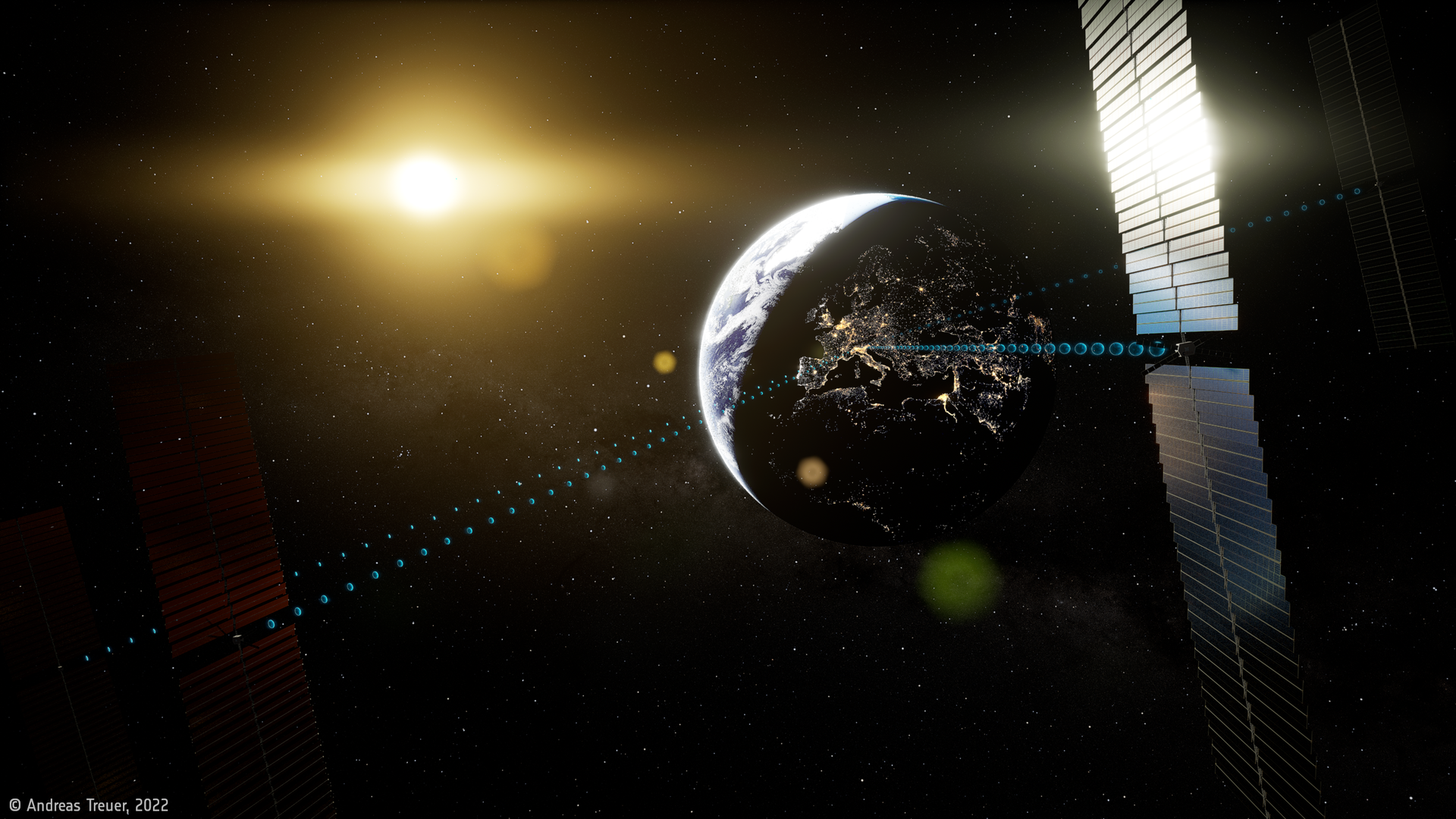Help ESA research key space-based solar power challenges
10/07/2023
39 views
1 likes
Space-based solar power could provide Earth with clean and reliable energy, 24 hours a day. As part of its SOLARIS initiative, ESA is inviting researchers to help advance our knowledge of key aspects of collecting solar power in space and wirelessly transmitting it to Earth.
Earth’s atmosphere, clouds and day-night cycle significantly reduce the average availability of sunlight, so collecting sunlight in space is much more efficient than doing so on the ground.
Space-based solar power, SBSP for short, would involve the placing of giant solar farm satellites far enough away from Earth that they can receive sunlight 24 hours a day. The power-generating satellites would then beam the collected energy down (using low-intensity radio waves, for example) to strategically placed ground stations connected to the grid or major power users.
The concept is based on existing technological principles and known physics, with no fundamental breakthroughs required. Telecommunication satellites and their ground receivers already contain the necessary core technologies. However, substantial improvements are still needed to allow future space-based solar farms to operate at the scale needed to become economically feasible.
Aside from such engineering problems, there are many open questions around wirelessly transmitting large amounts of energy through the atmosphere. In a new call for ideas on the Open Space Innovation Platform (OSIP), the Preparation element of ESA’s Basic Activities is soliciting ideas for research activities to address challenges linked to space-based solar power.
Key research topics include:
- Assessing risks to human health
- Assessing risks to flora and fauna
- Understanding the impacts on the atmosphere and weather
- Understanding the potential impact on aviation and ground infrastructure
- Understanding the environmental impact and carbon costs of launch and deployment
Overall, the aim is to solidify the scientific basis of space-based solar power, and improve our understanding of how it can be implemented in a way that is safe for the public, the environment and ecosystems.
Calling all researchers
“From the very beginning, SOLARIS has been looking to collaborate with the broader community,” says ESA engineer Aidan Cowley, who is leading the hunt for ideas. “The large attendance at the recent SOLARIS Research and Technology Day showed this to be a success. Now it is time to start advancing activities that were outlined and arose from these engagements – this OSIP call is the vehicle through which we drive this forward.”
Any academic or industrial entities with expertise in areas relevant to the proposed research activities are invited to submit an idea through OSIP. “We hope that the visibility that OSIP provides also brings the SOLARIS project to the attention of new actors who are interested in and capable of supporting the research topics,” notes Aidan.
Submit your idea for a research activity by 4 August 2023. If it is novel and suitable for implementation within ESA, you will be invited to mature it into a proposal for a co-sponsored research project that will be subject to a competitive evaluation.
These projects will mark a first step towards ensuring that any future implementation of space-based solar power is safe, compatible with other technology and overall positive for the planet.
For all the latest Technology News Click Here

